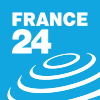Iran votes in a June 18 presidential election that could herald a change of direction after eight years under centrist Hassan Rouhani. The Guardian Council barred hardline ex-president Mahmoud Ahmadinejad, conservative former parliamentary speaker Ali Larijani and several reformist figures from running. FRANCE 24 takes a look at the men looking to lead Iran.
-
 Ebrahim Raisi
Ebrahim RaisiThe ultra-conservative favourite
-
 Saeed Jalili
Saeed JaliliThe shrewd nuclear negotiator
-
 Mohsen Rezaee
Mohsen RezaeeEx-leader of Revolutionary Guards
-
 Abdolnaser Hemmati
Abdolnaser HemmatiThe technocrat
-
 Alireza Zakani
Alireza ZakaniMP for Shia holy city Qom
-
 Mohsen Mehralizadeh
Mohsen MehralizadehEx-Khatami vice president
-
 Amir-Hossein
Amir-Hossein
Ghazizadeh-HashemiThe youngest of the ultraconservatives
Photos: AFP
Design and development: Studio Graphique France Médias Monde
Editor: Benjamin Dodman
Copy editor: William Prendiville
Senior producer: Stéphane Bernstein
Editorial director: Gallagher Fenwick
June 2021 © All rights reserved







